
Thanks

Producer
Eight people from very different backgrounds cross paths in Barcelona, Spain. Lawyers, musicians, translators, security guards, call center agents. They are all immigrants. Some have just arrived, others arrived years ago, leaving behind a war, a dictatorship or some sort of social or cultural discrimination. They all chose exile over submission.

Writer
Portabella is putting forward the second part of one of his historic works, the “General report on certain matters of interest for a public screening”, which peeked out in 1976 at the start of the political transition process after Franco’s death. This second “Report” is made in the context of a severe systemic crisis in the cultural, economic-financial, political and energy fields. Above all, it nevertheless bears witness to the way civil society is coming out of this crisis with a new prominence, consisting quite simply in ordinary people’s recovering politics.

Director
Portabella is putting forward the second part of one of his historic works, the “General report on certain matters of interest for a public screening”, which peeked out in 1976 at the start of the political transition process after Franco’s death. This second “Report” is made in the context of a severe systemic crisis in the cultural, economic-financial, political and energy fields. Above all, it nevertheless bears witness to the way civil society is coming out of this crisis with a new prominence, consisting quite simply in ordinary people’s recovering politics.

Screenplay
Part of the full-length feature ¡Hay motivo!, made up of 32 shorts directed by Spanish actors and directors protesting against the policies of the Partido Popular just before the 2004 general elections.

Director
Part of the full-length feature ¡Hay motivo!, made up of 32 shorts directed by Spanish actors and directors protesting against the policies of the Partido Popular just before the 2004 general elections.

Himself

Director
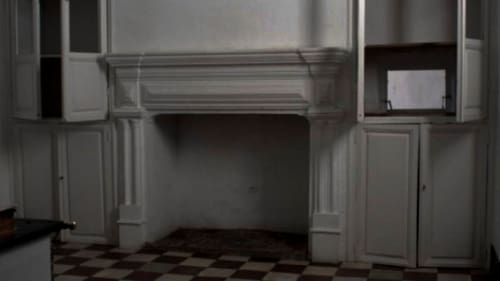
Screenplay
"Mudanza" (Removal) came to be made after the curator Hans Ulrich Obrist was asked for involvement in a project in the Huerta de San Vicente, the home and museum of the García-Lorca family in Granada. The film records the removal of furniture and objects from the building, leaving visitors able to move freely amongst its empty spaces and a silence charged with feeling and resonance and the take from the experience whatever they demand from it - thus making poet Federico García Lorca's emotive and historic absence even more powerful, evident and heartfelt.

Director
"Mudanza" (Removal) came to be made after the curator Hans Ulrich Obrist was asked for involvement in a project in the Huerta de San Vicente, the home and museum of the García-Lorca family in Granada. The film records the removal of furniture and objects from the building, leaving visitors able to move freely amongst its empty spaces and a silence charged with feeling and resonance and the take from the experience whatever they demand from it - thus making poet Federico García Lorca's emotive and historic absence even more powerful, evident and heartfelt.

Writer
This latest feature from the eccentrically experimental Catalan director Portabella is a beautiful, sometimes faintly bonkers celebration and contemplation of the role Bach’s music plays in the world today. Blending historical reconstruction with very loosely linked ‘dramatic’ scenes and documentary sequences, the film constitutes a playful, painterly sequence of variations on the argument that Johann Sebastian changed the way the world hears thanks to his extraordinary ear for harmony.

Director
This latest feature from the eccentrically experimental Catalan director Portabella is a beautiful, sometimes faintly bonkers celebration and contemplation of the role Bach’s music plays in the world today. Blending historical reconstruction with very loosely linked ‘dramatic’ scenes and documentary sequences, the film constitutes a playful, painterly sequence of variations on the argument that Johann Sebastian changed the way the world hears thanks to his extraordinary ear for harmony.

Self
What is the state of cinema and what being a filmmaker means? What are the measures taken to protect authors' copyright? What is their legal status in different countries? (Sequel to “Filmmakers vs. Tycoons.”)

Script
Carles Santos plays several of his pieces on the piano. This film was made for the exhibit on Carles Santos Visca el piano! held at the Miro Foundation in the summer of 2006.

Director
Carles Santos plays several of his pieces on the piano. This film was made for the exhibit on Carles Santos Visca el piano! held at the Miro Foundation in the summer of 2006.
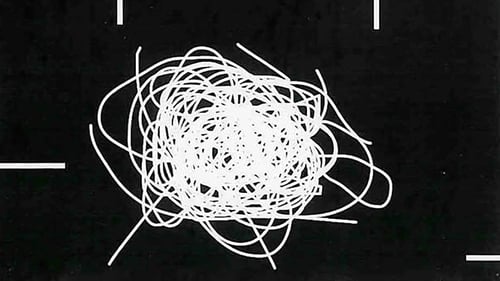
Director
A multi-part feature on the governing body of Spain, the Popular Party under Jose María Aznar. Themes include the bombing of Iraq, immigration, U.S. fire in Baghdad, and the manipulation of the media.

Director
2004 Portabella short in which a narrator explains the severe consequences of a proposed hydrological plan.

Director
a one-woman stage reading of a Joan Brossa play

Editor
Naked bodies are buffeted by water accompanied by the music Il Temporale from the opera La Cenerentola and the overture to Il Barbiere di Siviglia both by Gioacchino Rossini.

Director
Naked bodies are buffeted by water accompanied by the music Il Temporale from the opera La Cenerentola and the overture to Il Barbiere di Siviglia both by Gioacchino Rossini.
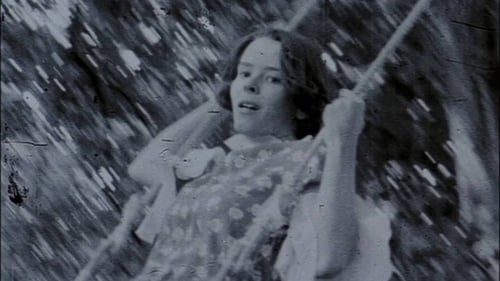
Executive Producer
Experimental silent homage to the origins of cinema, recreating the apparent disappearance of a French photographer in the 1920s.

Screenplay
An itinerary through the great creations of Catalan art: Romanesque, Gothic, Modernist and Contemporary; with interviews to Catalan creators such as architect Ricardo Bofill, poet Pere Gimferrer, sculptor Susana Solano, and painter Antoni Tàpies.

Director
An itinerary through the great creations of Catalan art: Romanesque, Gothic, Modernist and Contemporary; with interviews to Catalan creators such as architect Ricardo Bofill, poet Pere Gimferrer, sculptor Susana Solano, and painter Antoni Tàpies.

Writer
A female professor, a writer, and an orchestra conductor--three characters, two couples--attend a grand literary cocktail party. The writer has just won the prize for his book "Warsaw Bridge." The winner answers the journalist's questions one after another, but he is unable to come up with a synthesis of the plot of his book. They will simply have to read it.

Director
A female professor, a writer, and an orchestra conductor--three characters, two couples--attend a grand literary cocktail party. The writer has just won the prize for his book "Warsaw Bridge." The winner answers the journalist's questions one after another, but he is unable to come up with a synthesis of the plot of his book. They will simply have to read it.

A Pepe Carvalho adventure.
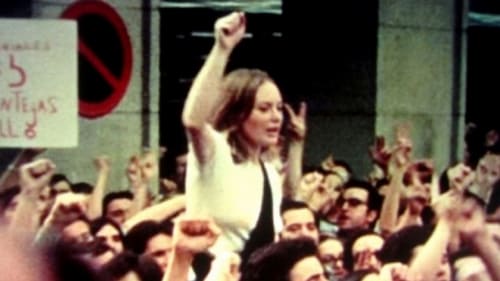
Producer
How does a country go from a dictatorship to a democracy? A detailed report on the political representation in the heart of the Spanish Transition, only a few months after General Franco’s death, when the sincere democratic vocation of Spanish people must effort to destroy, one heavy brick after another, the wall that those who supported the dictatorship and those who fought it from the exile built with resentment, hatred and prejudices.

Writer
How does a country go from a dictatorship to a democracy? A detailed report on the political representation in the heart of the Spanish Transition, only a few months after General Franco’s death, when the sincere democratic vocation of Spanish people must effort to destroy, one heavy brick after another, the wall that those who supported the dictatorship and those who fought it from the exile built with resentment, hatred and prejudices.

Director
How does a country go from a dictatorship to a democracy? A detailed report on the political representation in the heart of the Spanish Transition, only a few months after General Franco’s death, when the sincere democratic vocation of Spanish people must effort to destroy, one heavy brick after another, the wall that those who supported the dictatorship and those who fought it from the exile built with resentment, hatred and prejudices.

Writer
Five ex-political prisoners meet secretly in a country house one afternoon in 1974 on the same day that Salvador Puig Antich is executed, to talk about their experiences in prison.

Director
Five ex-political prisoners meet secretly in a country house one afternoon in 1974 on the same day that Salvador Puig Antich is executed, to talk about their experiences in prison.

Director
The film was conmissioned by the Galeria Maeght to commemorate the Joan Miró exhibit organized by the French Minsitry of Cultural Affairs in the Grand Palais in Paris that opened on May 17, 1974. The film, that took five days to shoot, shows the smelting and casting process of the work known as Puertas Mallorquinas by Joan Miró. The filming team travelled to the foundry owned by the Parellada family in Llinars de Munt.

Director
The film is divided into two large segments. The first is made up of a couple of fixed shots of the pianist, Carles Santos, playing the Prelude Op.45 in C sharp minor by Frederick Chopin. The second segment shows him listening to this own recording from a loudspeaker until he dons the headphones, therefore letting silence take over the film and consequently also over the audience in the movie theatre. The lenght of the silent shot is for the duration of the prelude.

Director
Commissioned by the Maeght Gallery with the exhibition of Joan Miró, organized by the French Ministry of Cultural Affairs at the Grand Palais, which opened on May 17, 1974 in Paris. This film was shot in six days in Montroig del Camp (at the Miró) and Tarragona during the implementation process, by Josep Royo, a tapestry by Joan Miró. Five people worked for eight months in the realization of this tapestry, using wool 1200kg and 600kg for the warp. The total weight of 3500kg and a half was six meters wide by 11 meters long. They need a purpose built weaving loom. The day of the attack on the World Trade Center in New York on September 11, 2001, the tapestry was placed in the lobby of one of the towers when they were demolished.

Associate Producer
An unprejudiced portrait of Spanish folklore and a crude analysis in black and white of its intimate relationship with atavism and superstition, with violence and pain, with blood and death; a story of terror, a journey to the most sinister and ancestral Spain; the one that lived far from the most visited tourist destinations, from the economic miracle and unstoppable progress, relentlessly promoted by the Franco regime during the sixties.

Producer
An atmospheric essay, which is an alternative version of Count Dracula, a film directed by Jess Franco in 1970; a ghostly narration between fiction and reality.

Screenplay
An atmospheric essay, which is an alternative version of Count Dracula, a film directed by Jess Franco in 1970; a ghostly narration between fiction and reality.

Director
An atmospheric essay, which is an alternative version of Count Dracula, a film directed by Jess Franco in 1970; a ghostly narration between fiction and reality.

Writer
This film turns on two basic axes: the inquiry into ways of cinematographic representation and a critical image of official Spain at the time of the Franco dictatorship. “Montage of attractions” and Brechtianism in strong doses. Umbracle is made up of fragments (some are archive footage) that resound rather than progress by unusual links, with dejá vu scenes that promise us more but remain tensely unfinished. Jonathan Rosembaun said: “few directors since Resnais have played so ruthlessly with the unconscious narrative expectations to bug us”. Learning from the feeling of strangeness caused by Rossellini as he threw well known actors into savage scenery in southern Europe. Portabella makes Christopher Lee wander around a dream-like Barcelona. Without a doubt Portabella’s most structurally complex and most profoundly political film, that is ferociously poetic.

Director
This film turns on two basic axes: the inquiry into ways of cinematographic representation and a critical image of official Spain at the time of the Franco dictatorship. “Montage of attractions” and Brechtianism in strong doses. Umbracle is made up of fragments (some are archive footage) that resound rather than progress by unusual links, with dejá vu scenes that promise us more but remain tensely unfinished. Jonathan Rosembaun said: “few directors since Resnais have played so ruthlessly with the unconscious narrative expectations to bug us”. Learning from the feeling of strangeness caused by Rossellini as he threw well known actors into savage scenery in southern Europe. Portabella makes Christopher Lee wander around a dream-like Barcelona. Without a doubt Portabella’s most structurally complex and most profoundly political film, that is ferociously poetic.

Director

Associate Producer

Editor
At underground film of the 1st Popular Festival of Catalan Poetry filmed in the Proce Theater in Barcelona on May 25, 1970, in solidarity with political prisoners. The participating poets were: Agustí Bartra, Joan Oliver (Pere IV), Salvador Espriu, Joan Brossa, Francesc Vallverdú and Gabriel Ferrater.

Director
At underground film of the 1st Popular Festival of Catalan Poetry filmed in the Proce Theater in Barcelona on May 25, 1970, in solidarity with political prisoners. The participating poets were: Agustí Bartra, Joan Oliver (Pere IV), Salvador Espriu, Joan Brossa, Francesc Vallverdú and Gabriel Ferrater.

Writer
Short film by Spanish/Catalan film maker Pere Portabella.

Director
Short film by Spanish/Catalan film maker Pere Portabella.

Story
Portabella’s first feature, co-scripted by poet Joan Brossa, became one of the most influential works of the Barcelona avant-garde, although like all his early films, it circulated only in an underground fashion. Eschewing dialogue, the director constructs a non-narrative story in fragments that reveal the daily lives of an adulterous couple interspersed with a cryptic stream of unrelated imagery. The title of this homage to directors including Eisenstein, Antonioni, Bergman, and Buñuel refers to the 29 “black years” of the Franco dictatorship. — chicago.cervantes.es

Screenplay
Portabella’s first feature, co-scripted by poet Joan Brossa, became one of the most influential works of the Barcelona avant-garde, although like all his early films, it circulated only in an underground fashion. Eschewing dialogue, the director constructs a non-narrative story in fragments that reveal the daily lives of an adulterous couple interspersed with a cryptic stream of unrelated imagery. The title of this homage to directors including Eisenstein, Antonioni, Bergman, and Buñuel refers to the 29 “black years” of the Franco dictatorship. — chicago.cervantes.es

Director
Portabella’s first feature, co-scripted by poet Joan Brossa, became one of the most influential works of the Barcelona avant-garde, although like all his early films, it circulated only in an underground fashion. Eschewing dialogue, the director constructs a non-narrative story in fragments that reveal the daily lives of an adulterous couple interspersed with a cryptic stream of unrelated imagery. The title of this homage to directors including Eisenstein, Antonioni, Bergman, and Buñuel refers to the 29 “black years” of the Franco dictatorship. — chicago.cervantes.es

Dr. Sanpona
David (Mark Stevens) is a physician who returns to Spain 30 years after his involvement in the Spanish Civil War. Now a member of a medical convention, he looks up old friends and finds his former lover, now a married woman with a flamenco-dancing daughter. He and the daughter (Manuela Vargas) have an immediate and mutual attraction to each other. He considers running away with the exotic beauty before asking his wife to join him for an extended vacation after the convention .

Director
With musical accompaniment from the zarzuela 'The drum Grenadiers' by Ruperto Chapí, a pair of custodians are in the basement of the National Library of Madrid showing some canvas awarded with the National Prize for Painting between 1941 and 1969.

Editor
The Colegio de Arquitectos de Catalunya commissioned Pere Portabella to make this film for the Joan Miró retrspective exhibit in 1969. There wew heated discussions on whether it would be rudent to screen the film during the exhibit. Portabella took the following stante: "either both films are screened or ther don't screen any" and, finally, both Miro l'Altre and Aidez l'Espagne were shown. The film was made by combining newsreels and film material from the Spanish Civil War with prints by Miró from the series "Barcelona" (1939-1944). The film ends with the painter's "pochoir" known as Aidez l'Espagne.

Cinematography
The Colegio de Arquitectos de Catalunya commissioned Pere Portabella to make this film for the Joan Miró retrspective exhibit in 1969. There wew heated discussions on whether it would be rudent to screen the film during the exhibit. Portabella took the following stante: "either both films are screened or ther don't screen any" and, finally, both Miro l'Altre and Aidez l'Espagne were shown. The film was made by combining newsreels and film material from the Spanish Civil War with prints by Miró from the series "Barcelona" (1939-1944). The film ends with the painter's "pochoir" known as Aidez l'Espagne.

Writer
The Colegio de Arquitectos de Catalunya commissioned Pere Portabella to make this film for the Joan Miró retrspective exhibit in 1969. There wew heated discussions on whether it would be rudent to screen the film during the exhibit. Portabella took the following stante: "either both films are screened or ther don't screen any" and, finally, both Miro l'Altre and Aidez l'Espagne were shown. The film was made by combining newsreels and film material from the Spanish Civil War with prints by Miró from the series "Barcelona" (1939-1944). The film ends with the painter's "pochoir" known as Aidez l'Espagne.

Director
The Colegio de Arquitectos de Catalunya commissioned Pere Portabella to make this film for the Joan Miró retrspective exhibit in 1969. There wew heated discussions on whether it would be rudent to screen the film during the exhibit. Portabella took the following stante: "either both films are screened or ther don't screen any" and, finally, both Miro l'Altre and Aidez l'Espagne were shown. The film was made by combining newsreels and film material from the Spanish Civil War with prints by Miró from the series "Barcelona" (1939-1944). The film ends with the painter's "pochoir" known as Aidez l'Espagne.

Director
As publicity for the exhibit Miró L’altre, organized by the Colegio de Arquitectos de Catalunya in 1969, the Board commissioned Pere Portabella to film Miró painting the “poster” for the exhibit on the ground floor windows of the building. Portabella was not interested in simply filming a testimonial documentary. However, he said he would do the film if after the exhibit Joan Miró himself, with the help of the cleaning staff erased his own painting. Joan Miró accepted the idea without a doubt. The complicity between the film maker and the painter is evident in the filming.

Writer
Pere Portabella’s first work as a director starts with the following phrase: “defeated…but not conquered”. This may or should be taken as an allusion to the technical K.O. taken by Portabella from Franco’s regime during the sixties as regards his work as a producer. Through the extremely raging playthings of the words of Catalan poet Joan Brossa, Portabella attempts to dismantle the forms of advertising discourse of that time.

Director
Pere Portabella’s first work as a director starts with the following phrase: “defeated…but not conquered”. This may or should be taken as an allusion to the technical K.O. taken by Portabella from Franco’s regime during the sixties as regards his work as a producer. Through the extremely raging playthings of the words of Catalan poet Joan Brossa, Portabella attempts to dismantle the forms of advertising discourse of that time.

Co-Writer
Miguel, a poor young man living in Franco's Spain becomes a bull fighter to escape starvation.
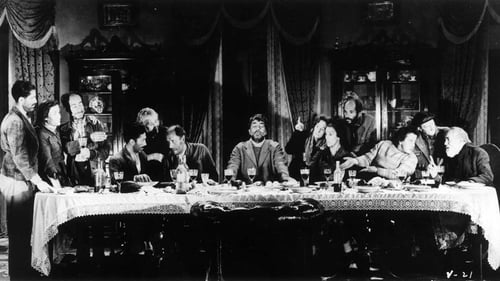
Producer
Viridiana is preparing to start her life as a nun when she is sent, somewhat unwillingly, to visit her aging uncle, Don Jaime. He supports her; but the two have met only once. Jaime thinks Viridiana resembles his dead wife. Viridiana has secretly despised this man all her life and finds her worst fears proven when Jaime grows determined to seduce his pure niece. Viridiana becomes undone as her uncle upends the plans she had made to join the convent.
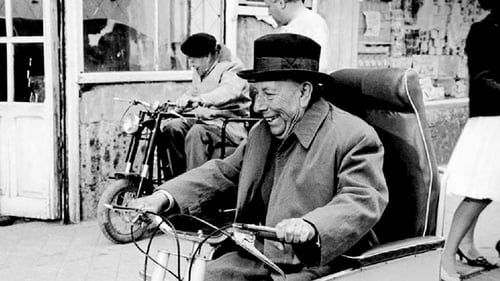
Producer
Don Anselmo, a retired old man, decides to buy a motorized disabled stroller since all his pensioner friends own one. His family strongly refuses him to purchase the vehicle, so don Anselmo decides to take extreme measures to achieve his goal…

Producer
Three restless slum boys are turned to a life of petty thievery, but when one of them expresses a hopeful desire to become a bullfighter, the others pool their energies to pull one big heist in order to finance their pal's dream.

Producer















